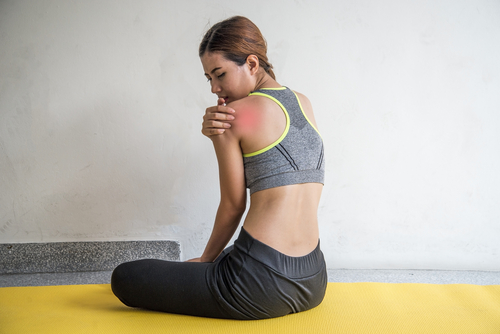Living with a Rotator Cuff Injury: Coping Strategies and Support
December 1, 2023 10:58 pm Leave your thoughts
Sustaining a rotator cuff injury can be a frustrating and painful experience. It is important to understand how to cope with the injury, both physically and emotionally, in order to promote healing and improve overall well-being. By implementing effective coping strategies and seeking support, individuals can navigate the challenges associated with living with a rotator cuff injury.
Understanding the Injury:
Before discussing coping strategies, it is essential to comprehend what a rotator cuff injury entails. The rotator cuff is a group of muscles and tendons that surround the shoulder joint and provide stability and mobility. These muscles can become strained, torn, or damaged due to overuse, trauma, or degeneration. The injury can result in pain, weakness, limited range of motion, and difficulty performing daily activities.
Physical Coping Strategies:
1. Rest and Recovery: Prioritizing rest is crucial to allow the injured shoulder to heal. Avoid activities that worsen the pain or strain the shoulder. Engage in activities that do not require much shoulder movement, such as reading, listening to music, or watching movies.
2. Rehabilitation Exercises: Working with a physical therapist or healthcare professional to develop a tailored exercise program is essential for strengthening the shoulder and improving range of motion. Adhering to the exercise program diligently can aid in the recovery process.
3. Pain Management: Rotator cuff injuries can be accompanied by significant pain. Over-the-counter pain medications or prescription pain relievers prescribed by a healthcare professional may provide temporary relief. Additionally, applying ice or heat packs to the affected area can help alleviate pain and reduce inflammation.
4. Supportive Devices: Utilizing supportive devices, such as slings or braces, can provide stability to the injured shoulder and prevent further damage. Ensure that the device is fitted properly to maximize its effectiveness.
Psychological Coping Strategies:
1. Acceptance and Adaptation: Coming to terms with the injury and accepting its limitations is an important step towards psychological healing. Recognize that healing takes time and that it is normal to experience frustration or sadness. Adapt daily routines and find alternative ways of performing tasks to maintain independence and avoid feelings of helplessness.
2. Stress Management: Coping with a rotator cuff injury can be stressful. Engaging in stress-reduction techniques, such as deep breathing exercises, meditation, or practicing mindfulness, can help manage stress levels and promote overall well-being.
3. Positive Mindset and Self-Care: Focusing on maintaining a positive mindset, despite the challenges, can significantly impact emotional well-being. Engage in self-care activities that bring joy and relaxation, such as reading, listening to music, or practicing hobbies that do not strain the injured shoulder.
4. Seek Professional Support: It is essential to reach out to healthcare professionals, such as psychologists or counselors, who specialize in pain management and rehabilitation. They can provide guidance and support to help navigate the emotional aspects of living with a chronic injury.
Support Systems:
1. Friends and Family: Building a support system of friends and family members who are understanding and empathetic can make a significant difference in coping with a rotator cuff injury. Sharing experiences and seeking their support can alleviate feelings of isolation and improve emotional well-being.
2. Support Groups: Joining support groups specific to individuals with rotator cuff injuries can provide a safe space to connect with others facing similar challenges. These groups can offer a platform for sharing experiences, exchanging coping strategies, and providing emotional support.
Summary:
Living with a rotator cuff injury can be challenging, but implementing effective coping strategies and seeking support can make the journey more manageable. By focusing on physical and psychological healing, individuals can promote recovery and improve overall well-being. Remember to be patient, seek professional help when needed, and build a support system to navigate the challenges associated with living with a rotator cuff injury.
Need an Orthopedic Surgeon in Las Vegas, NV?
Welcome to Bernard Ong, M.D.! With extensive experience and an expert in the industry, Dr. Bernard Ong is the premier orthopedic surgeon in Las Vegas, Nevada. Our services focus on providing the very best in patient care, including orthopedic surgery, sports medicine, arthroscopy, meniscus surgery, ACL surgery, knee replacement, and more. As a sole practitioner, you know you are getting the highest level of personalized care from Dr. Ong. Contact us today for more information or to schedule your appointment!
Categorized in: Rotator Cuff Injury, Rotator Cuff Pain
This post was written by admin
